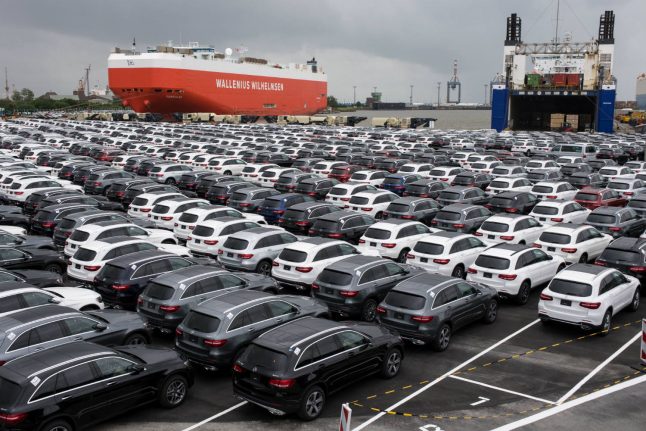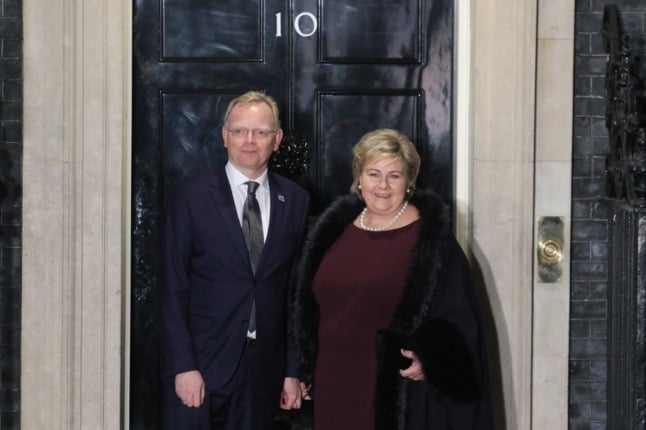Mammoth exports
Giants Volkswagen, BMW and Mercedes-Benz parent Daimler exported a total of 494,000 cars from Germany to the US in 2017, or 45 percent of all European auto exports to America.
At €22 billion, Germany accounted for 55 percent of the value of all European cars sold to the US that year, Pictet bank calculated in a research note.
SEE ALSO: German carmakers to hold talks with Trump over tariffs
Margins squeezed
“If tariffs were imposed that would make it much harder for the import brands to offer those high incentives” like discounts in the US market, analyst Peter Nagle of IHS Markit told AFP.
“The US brands could take advantage of those pricing mismatches.”
Meanwhile, Pictet noted that American “demand for European cars declines by around 1.5 to 3.0 percent when prices rise by one percent”.
Over the long term, the 25-percent tariffs mooted by President Donald Trump could halve the number of German cars shipped to the US as demand falls, the Munich-based Ifo institute predicted.
Ripple effect
Rating agency Moody's reckoned tariffs could prove a drag on German GDP growth of around 0.2 percentage points, while Pictet's estimate was higher, at 0.3 to 0.4 percentage points.
“Amongst the EU countries, Germany is by far most strongly affected by potential new US tariffs on car imports,” Ifo economist Gabriel Felbermayr judged.
 President Trump in Washington, US, earlier this month. Photo: DPA
President Trump in Washington, US, earlier this month. Photo: DPA
He suggested that the tariffs would cost the European economy nine billion euros per year, including five billion in Germany.
And the consequences for Europe's largest economy “would extend far beyond the directly affected firms,” an EY study published in December found, “given the high significance of the car industry in Germany and its weight in German-American trade relations.”
After the federal government slashed its GDP growth forecast for 2019 to 1.0 percent early this year, “the already shaky upturn would be in danger of ending,” analyst Charlotte Heck-Parsch of BayernLB bank warned.
“A key question is whether the US administration will also impose tariffs on car parts,” said Pictet analyst Nadia Gharbi. “If excluded, that would reduce the negative impact on EU countries.”
Snowball effect
German carmakers could try and cushion the effects of tariffs by producing more at their massive American factories, car industry expert Ferdinand Dudenhoeffer said.
But some brands, including Volkswagen subsidiaries Audi and Porsche, have no base in the US.
Meanwhile tariffs would be the latest broadside against an already battered industry, pounded by “dieselgate”, the US-China trade conflict, a general economic slowdown, the threat of a no-deal Brexit and the burden of massive investments in electric cars.
With Germany and other EU members' growth slowing, “a tariffs hike would come at a time when confidence is already in decline and vulnerable,” ING bank economist Raoul Leering noted.
What's more, retaliation by Brussels with tariffs on American products “could well lead to further protectionist steps by the US government… which in turn will have a negative feedback into production and employment,” he added.
By Yann Schreiber



 Please whitelist us to continue reading.
Please whitelist us to continue reading.
Member comments